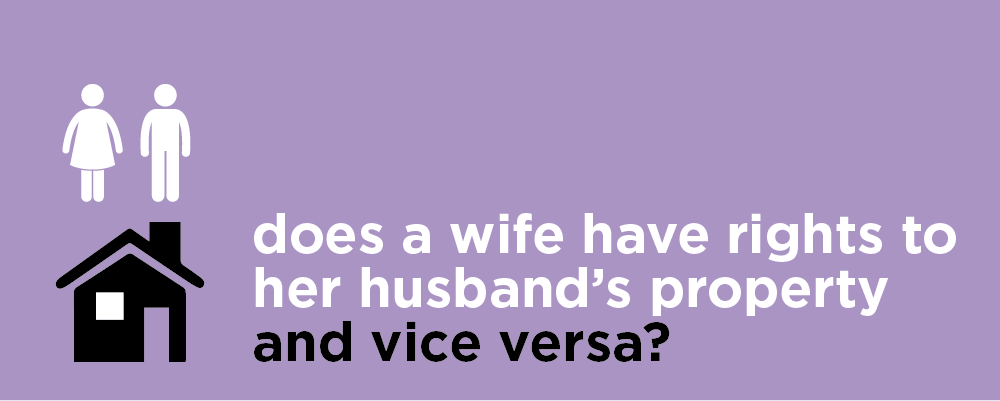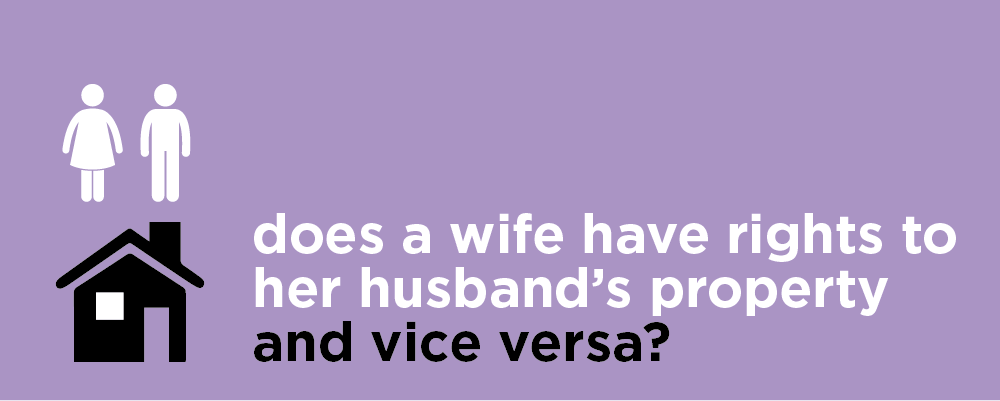- Basildon 01268244144
- Chelmsford 01245453800
- Colchester 01206217300
- London 020 4586 1280

The title of this blog is a question that we have to answer frequently but to which the answer is not always straightforward.
The term “rights” is in itself ambiguous, as it might refer to a right of occupation in relation to a property or alternatively, to a right to receive proceeds of sale, to force a sale or to inherit in the event of the spouses death and so much will depend upon the context in which the question is asked.
Managing your financial affairs
The starting position in law is that a person who is of sound mind and understanding is free to manage their financial affairs however they wish. A person may, for example, choose to purchase or sell a property in their sole name or transfer or purchase in joint names with another. Equally, they may choose what they wish to happen to that property in the event of their death. However, English law provides for a couple to have a number of rights and obligations towards each other as a result of the marriage.
The family home
One such right that exists relates to the family home. In this respect, where the principal family residence is owned in the sole name of one spouse, the other will have an automatic right to occupy that property until such time as a final divorce order is pronounced (unless those rights have been extended or suspended by court order).
Further rights arise in the event of a marriage breakdown and an application being made for divorce. In that situation, a right arises to a financial remedy order which is considered to be fair, taking into account all the circumstances of the case. In considering the appropriate outcome, all assets are taken into account whether they are held in joint or sole names. Primarily, consideration is given to a division of the matrimonial assets.
Matrimonial assets
Matrimonial assets are usually those assets that have been built up during the courts of the marriage or which by their nature are considered to be matrimonial (e.g. the family home).
Sometimes it is necessary to differentiate between matrimonial and non-matrimonial assets. Non-matrimonial assets might include assets that were bought into the marriage or which were received by way of inheritance. Where there are non-matrimonial assets, it may be possible to seek to ring fence these from division, however, they will remain an asset that is available to meet needs.
Ultimately, the court retains a significant amount of discretion and in addition to needs, the other factors that will be taken into account include the parties incomes and earnings capacities, resources, length of marriage, conduct and contributions.
What happens if you pass away?
Additional rights to a spouse’s property can arise in the event of their death. Should a spouse die without leaving a will, then the intestacy rules will apply with the spouse having an entitlement to inherit from the estate.
In the event that a valid will is in place, then this will determine the inheritance to be received, though it can be subject to challenge under the Inheritance (Provision for Family and Dependants) Act if it can be shown that the will failed to make adequate provision for the surviving spouse.
In addition to the above, it also remains possible to establish an interest in property which is owned legally in your spouse’s name if it is possible to prove that it is owned on trust. This is not likely to be of significant relevance in divorce proceedings due to the extensive discretion of the court but could be extremely relevant in the event of bankruptcy or inheritance disputes.
In all cases, a spouse’s “rights” to property are going to depend upon the specific circumstances and for those facing this question, it is always going to be strongly recommended that they seek independent legal advice.
At Birkett Long LLP, our specialist solicitors will be able to give clear advice as to your situation and set out the options going forwards. For more information, and to take advantage of our free 15 min no obligation discussion, please contact Karen Johnson on 01206 217 305 or karen.johnson@birkettlong.co.uk.




Comments